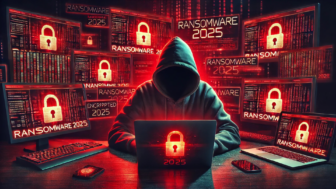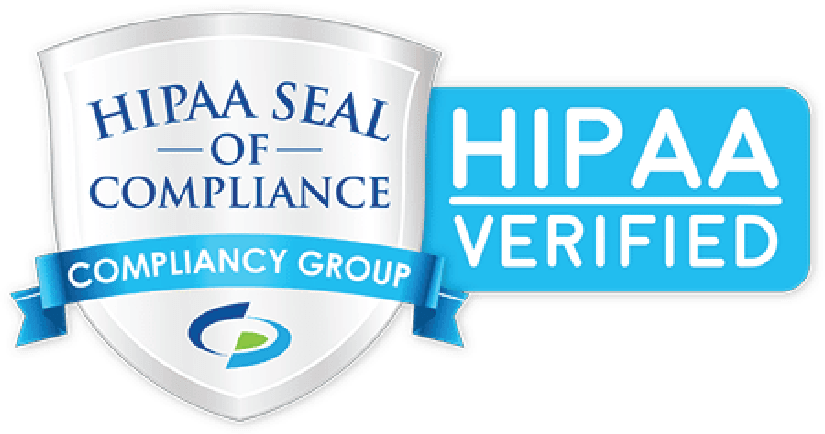As a small business owner, you may think that cyber threats like ransomware only affect large corporations. However, the reality is that small businesses are often targeted by cybercriminals because they may have weaker cybersecurity defenses. Ransomware is a type of malware that encrypts your data and demands payment in exchange for the decryption key. It can be devastating for small businesses, as it can result in data loss, financial loss, and reputational damage.
To protect your small business from ransomware and other cyber threats, it’s crucial to establish robust cybersecurity fundamentals. This includes implementing strong passwords, regularly updating software and operating systems, and backing up your data regularly. Cultivating a security-conscious business culture is also essential. This involves educating your employees about cybersecurity best practices, such as how to recognize phishing emails and how to avoid downloading suspicious attachments.
Key Takeaways
- Small businesses are often targeted by cybercriminals, making it crucial to establish robust cybersecurity fundamentals.
- Cultivating a security-conscious business culture is essential to protect against cyber threats like ransomware.
- Regularly backing up your data and educating your employees about cybersecurity best practices can help prevent data loss and financial damage.
Establishing Robust Cybersecurity Fundamentals
Protecting your small business from ransomware attacks requires a comprehensive approach to cybersecurity. By establishing robust cybersecurity fundamentals, you can safeguard your digital assets against cyber threats. In this section, we will discuss the key elements of a strong cybersecurity strategy that can help you protect your business from ransomware attacks.
Understanding Ransomware and Its Impact on Small Businesses
Ransomware is a type of malware that encrypts your files and demands payment in exchange for the decryption key. Small businesses are particularly vulnerable to ransomware attacks because they often lack the resources to implement robust cybersecurity measures. A successful ransomware attack can result in significant financial losses, reputational damage, and even business closure.
To protect your small business from ransomware threats, it is essential to understand the different types of ransomware attacks and their impact on your business. By staying informed about the latest ransomware threats, you can take proactive measures to prevent attacks from occurring.
Developing a Strategic Incident Response Plan
Developing a strategic incident response plan is critical to minimizing the impact of a ransomware attack. An effective incident response plan should include clear guidelines for identifying, containing, and mitigating the effects of a ransomware attack. Your incident response plan should also include a communication strategy for notifying stakeholders and customers of the attack.
To develop an incident response plan, you should conduct a risk assessment to identify the potential threats to your business. You should also establish a chain of command for responding to a ransomware attack, and define the roles and responsibilities of each team member.
Implementing Effective Backup and Recovery Solutions
A robust backup and recovery strategy is one of the most reliable defenses against ransomware. By backing up your data regularly, you can restore your systems to their previous state in the event of a ransomware attack. It is essential to store your backups securely and test them regularly to ensure their effectiveness.
Implementing effective backup and recovery solutions requires a multi-layered approach. You should consider using cloud-based backup solutions, as well as physical backups stored in a secure location. You should also implement a multi-factor authentication (MFA) solution to protect your backups from unauthorized access.
In conclusion, establishing robust cybersecurity fundamentals is essential to protecting your small business from ransomware attacks. By understanding the ransomware threat, developing a strategic incident response plan, and implementing effective backup and recovery solutions, you can safeguard your digital assets and minimize the impact of a ransomware attack.
Cultivating a Security-Conscious Business Culture
As a small business owner, it is important to cultivate a culture of security within your organization. This means creating an environment where employees are aware of the risks of cyber threats and understand their role in protecting the company’s digital assets. By doing so, you can reduce the risk of cyber attacks and protect your business from the devastating effects of ransomware.
Training Employees to Recognize and Avoid Cyber Threats
One of the most effective ways to prevent ransomware attacks is to train your employees to recognize and avoid cyber threats. This includes teaching them how to identify phishing emails, suspicious links, and other types of social engineering attacks. By providing regular training and drills on best practices, such as examining email attachments, handling unfamiliar emails, and reporting anomalies, you can help your employees become more aware of the risks and better equipped to defend against them.
Sharing Information and Collaborating with Industry Partners
Another important aspect of creating a security-conscious culture is sharing information and collaborating with industry partners. This can include joining an Information Sharing and Analysis Center (ISAC) or other industry group that shares information and best practices on cybersecurity. By participating in these groups, you can stay up to date on the latest threats and trends in the security landscape, and learn from other companies’ experiences.
Overall, creating a culture of security is essential for protecting your business from ransomware and other cyber threats. By training your employees to recognize and avoid cyber threats, and collaborating with industry partners to share information and best practices, you can reduce the risk of a data breach and ensure the security of your digital assets. Remember, cybersecurity is everyone’s responsibility, from the CEO to the IT department to the front-line employees. By working together, you can defend against cybercriminals and protect your business from the devastating effects of ransomware.
Frequently Asked Questions
What steps can small businesses take to implement effective ransomware protection?
Small businesses can take several steps to implement effective ransomware protection. First, it is essential to regularly update all software and hardware to ensure that they are protected against the latest cyber threats. Additionally, small businesses should invest in reputable antivirus software and firewalls to prevent unauthorized access to their systems. It is also crucial to educate employees on cybersecurity best practices, such as never clicking on suspicious links or downloading attachments from unknown sources.
How can a small business establish a cybersecurity policy to safeguard against digital threats?
Establishing a cybersecurity policy is crucial for small businesses to safeguard against digital threats. A cybersecurity policy should outline the company’s security protocols, including password requirements, data backup procedures, and incident response plans. It is essential to regularly review and update the policy to ensure that it remains effective against the latest cyber threats.
What are the essential cybersecurity services that small businesses should consider?
Small businesses should consider several essential cybersecurity services to protect their digital assets against cyber threats. These services include antivirus software, firewalls, intrusion detection systems, and data backup and recovery solutions. Additionally, small businesses should consider implementing multi-factor authentication to add an extra layer of security to their systems.
Which cybersecurity best practices are most crucial for small business owners?
Small business owners should prioritize several cybersecurity best practices to protect their digital assets against cyber threats. These best practices include regularly updating software and hardware, using strong passwords, encrypting sensitive data, and limiting employee access to critical systems and information. It is also crucial to regularly train employees on cybersecurity best practices to ensure that they remain vigilant against cyber threats.
What should be included in a small business cybersecurity checklist to prevent cyber attacks?
A small business cybersecurity checklist should include several essential items to prevent cyber attacks. These items include regularly updating software and hardware, implementing antivirus software and firewalls, backing up data regularly, and regularly reviewing and updating the company’s cybersecurity policy. Additionally, the checklist should include employee training on cybersecurity best practices and procedures for responding to security incidents.
How important is it for small businesses to keep up with cybersecurity statistics and trends?
It is essential for small businesses to keep up with cybersecurity statistics and trends to stay informed about the latest cyber threats and best practices. By staying informed, small businesses can take proactive steps to protect their digital assets against cyber threats. They can also adjust their cybersecurity policies and procedures to remain effective against the latest cyber threats.




